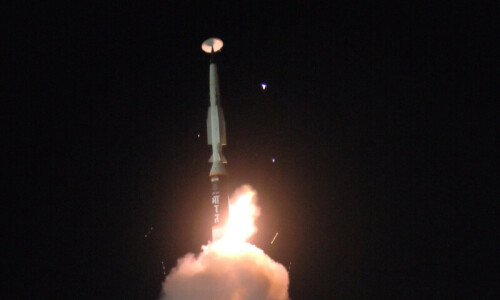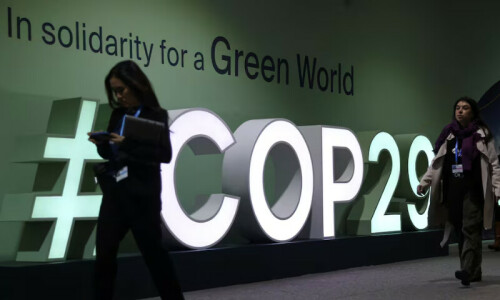ISLAMABAD: Pakistan and India signed here on Friday three technical agreements and discussed trade in gas and electricity.
The agreements on redressal of trade grievances, mutual recognition and customs cooperation will facilitate bilateral business mechanism and ease issues relating to certification, licensing, lab testing, etc.
The two sides agreed to a number of specific steps and timelines for implementing the agreements.
They agreed to reduce the number of items to 100 in the sensitive list before the end of 2017 under the South Asia Free Trade Agreement (Safta) on a reciprocal basis.
Another agreement between the Export Inspection Council of India and Pakistan Standard and Quality Control Authority will also be signed soon.
Indian Commerce Secretary S.R. Rao said the agreements would be implemented in litter and spirit.
“We will identify barriers restricting our exports to India for their removal,” Pakistan’s Commerce Secretary Munir Qureshi said.
Pakistan agreed to lift a restriction on trade through the Wagah-Attari land route for all commodities by the end of October this year. At present trade of only 137 items is allowed through the route.
Working groups of the two countries will meet next month to explore the possibility of opening the Munabao-Khokhrapar land route for trade.
India agreed to bring down the number of items in its sensitive list by 30 per cent before December this year keeping in view Pakistan’s export interests.
As agreed earlier, Pakistan will complete the transition of most-favoured nation (non-discriminatory) status for India by the end of this year. After that India will bring down its Safta sensitive list to 100 tariff lines by April next year.
The items placed in the sensitive list are allowed for trade, but these attract much higher customs duties and reduce their trading margin.
As India will notify the reduced sensitive list, Pakistan will reduce its sensitive list to 100 items over the next five years.
Before the end of 2020, the peak tariff rate for all tariff lines, except for a small number of products in the sensitive lists, will not be more than five per cent. It will be an ultimate goal for achieving complete liberalisation process between the two countries.
BANK BRANCHES: The Indian commerce secretary said the names of banks willing to open branches in each other’s country would be exchanged in the next couple of months. But, he said, the State Bank of Pakistan and the Reserves Bank of India would look into modalities and put in place a mechanism for opening the branches.
About export of electricity, Mr Rao said an understanding had been reached to use the available infrastructure as a short-term measure to transfer limited electricity. It would be used for both ways, he added.
India offered Pakistan 500MW of electricity, but Mr Rao said the infrastructure required to transmit it would take time to be put in place.
India also offered to export up to five million cubic metres per day of gas for an initial period of five years.
The Pakistani side said it had received the offer and was considering it.
Bharat Heavy Electrical Ltd, an Indian public sector company, made an offer to cooperate with the Pakistan government in setting up of 500-2000MW coal/hydro or gas power plants.
India expressed its willingness to cooperate with Pakistan in areas of wind and solar energy and offered to help Pakistan Railways in meeting its requirements of up to 100 locomotives.
A demand was made to allow high capacity wagons for trade from Pakistan which carry load three times more than regular wagons. For this and other issues, railway ministries of the two countries will meet on a monthly basis to work out measures for increasing trade through train.
The two sides agreed to simplify procedures and encourage investment. Outreach programmes will be held with business communities on both sides on investment opportunities, application procedures and regulatory issues. A joint working group will be constituted before Nov 15 to work out a liberalised regime of reciprocal bilateral rights for commercial flights between Delhi and Islamabad.














































